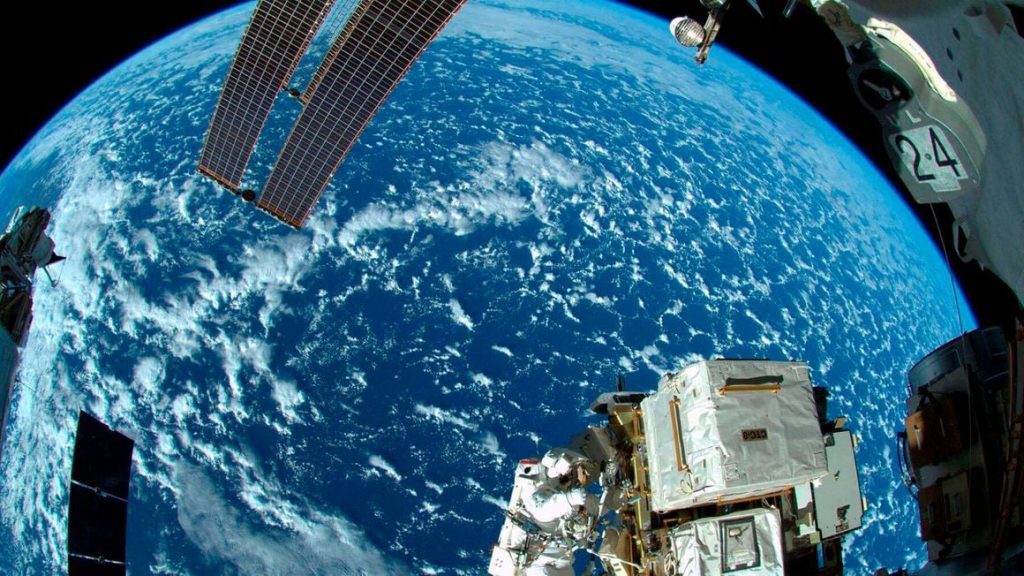Despite significant investments in Africa’s space sector, the continent continues to struggle with the effective use of its own satellites to gather essential data for climate change adaptation and mitigation.
Currently, at least 13 African nations—including Kenya, Uganda, and Rwanda—have successfully launched satellites funded by their taxpayers. However, years later, these satellites have yet to fulfill their potential in collecting Africa-specific data.
Recently, the African Union Commission (AUC) announced a partnership with the European Meteorological Satellite Agency (EUMETSAT) to utilize their Earth observation satellites for collecting crucial data tailored to African needs. This collaboration underscores the limitations of domestically produced space technology.
According to a statement from EUMETSAT, the agreement allows African meteorological and environmental services to access data from advanced satellite systems, facilitating the establishment of new infrastructure for data reception and educational resources to maximize the impact of this satellite information.
The importance of satellite data has become increasingly apparent, particularly as Africa grapples with the severe impacts of climate change, leading to devastating natural disasters that have resulted in substantial loss of life and property.
Samuel Nyangi, an astronomer and team leader at the Amateur Astronomical Society of Kenya, emphasizes the need for greater awareness regarding the benefits of space technology. He argues that it can address approximately 60 percent of Africa’s challenges. Wanjiku Chebet Kanjumba, a Kenyan aerospace engineer based in the US, echoes this sentiment, highlighting the multifaceted uses of satellites, from navigation to weather forecasting, and the urgent need for Africa to harness this technology.
This push for leveraging satellite technology for climate data has propelled nations like Kenya to launch their satellites, with the latest, Taifa-1, launched in April 2023. However, a year later, the Kenya Space Agency (KSA) still relies on external sources, such as the United Nations Satellite Centre and NASA, for Earth observation data, indicating that Taifa-1 has not yet delivered significant findings.
Uganda’s PearlAfricaSat-1, launched in November 2022, has faced similar setbacks, primarily due to delays in establishing the necessary ground station for command operations, leading to its eventual expiration.
Rwanda’s satellites, Icyerekezo and RwaSat-1, launched in 2019, have also struggled to make a meaningful impact, joining the ranks of African satellites that have not achieved their intended outcomes.
Other nations, including South Africa, Egypt, Nigeria, and Algeria, have also launched satellites, but the recent partnership between EUMETSAT and the AUC highlights the inadequacy of African satellites to meet the continent’s needs.
Currently, the annual value generated by Earth observation satellite data is estimated at $266 billion, projected to increase to over $700 billion by 2030. The cumulative contribution to global GDP from this sector is expected to reach $3.8 trillion between 2023 and 2030, according to a recent World Economic Forum study.
Kanjumba argues that for Africa to capitalize on this burgeoning industry, it must prioritize investments in space infrastructure. She points out that Africa’s geographical position near the equator offers advantages for satellite launches, suggesting that the continent should focus on building its capabilities rather than relying on foreign data.
EUMETSAT’s director-general, Phil Evans, noted that the organization has supported African nations with data and capacity-building initiatives for over two decades under the European Union-Africa Partnership.
AUC Commissioner for Education, Science, Technology, and Innovation, Mohamed Belhocine, described the partnership with EUMETSAT as timely, emphasizing its alignment with the African Space Policy and Agenda 2063, which aims to address environmental and climate challenges through satellite data.
However, on the same day the AUC strengthened its ties with European satellite systems, the European Council announced plans to bolster investments in its own space industry, highlighting the competitive landscape in which Africa finds itself.
Thomas Dermine, Belgium’s State Secretary for Strategic Recovery and Investments, stated that a robust space policy would create job opportunities and accelerate economic growth in Europe.
Despite having some of the most advanced space industries globally, Europe continues to invest heavily in the sector, with an estimated $2.8 billion spent by the EU last year alone, while Africa’s public expenditure on space programs was just over $500 million, the lowest globally.
Experts Nyangi and Kanjumba both acknowledge that while Africa’s initial strides in developing its space industry are commendable, more needs to be done to enhance its growth. Nyangi stresses the necessity for capacity building, noting that without experts to analyze data from African satellites, their potential remains untapped.
Kanjumba suggests leveraging Africa’s strategic location to develop a spaceport that could attract foreign investment and expertise, facilitating knowledge transfer and technological development.
Kenya is already moving forward with plans to establish a state-owned spaceport, aiming for substantial completion by 2027, as outlined in its recently released strategic plan for 2023-2027.























